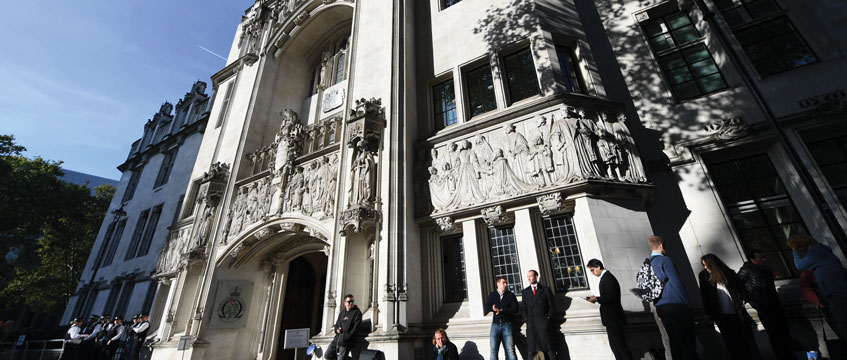The Supreme Court ruled today that planning authorities cannot forces developers to build a public road by making it a planning condition.
The judges were ruling in a dispute between Swindon Borough Council and landowner DB Symmetry, one of the country’s largest landowners, which rebranded as Tritax Symmetry in 2019.
The long-running dispute relates to the landowner’s Symmetry Park development, on the outskirts of Swindon.
The council argues that it was a condition of planning permission for the project that the developer of the land builds a public highway on the site.
Tritax disagrees, arguing that is unlawful for it to be required to build a public highway for public use, rather than a private road. It also said that if it does, it should be compensated.
Specifically, the dispute is over condition 39 of the planning permission document, which stated the access roads “shall be constructed in such a manner as to ensure that each unit is served by fully functional highway”.
The council argues this condition means the developer must build a “highway” or a road for public use. Tritax, however, argues that the condition regulates the physical attributes of the road, not whether or not there should be public access.
In a ruling handed down today, the Supreme Court backed Tritax, upholding a judgment from the Court of Appeal.
Giving judgment, Supreme Court Justice Lord Hodge outlined the legal point at stake.
“Is it lawful for a planning authority, in granting planning permission, to impose a planning condition that the developer of the land will dedicate land within its site as a public highway?” he said.
“The court holds that it is not lawful to do so.”
Lawyers for Tritax argued that a 1964 Court of Appeal judgment in Hall & Co Ltd v Shoreham by Sea Urban DC established a legal principle that a planning condition cannot lawfully require a developer to dedicate land for public purposes without the payment of compensation.
Lord Hodge said the court agreed with this point and confirmed that the cited case was the correct authority.
“It is long established that a planning condition must be imposed for a planning purpose and not for an ulterior one, that the condition must fairly and reasonably relate to the permitted development and that it must not be so unreasonable that no reasonable authorities would have imposed it,” he said.
“It is also government policy from the outset of the planning system, that planning conditions cannot be imposed to require a landowner to cede land for road improvements.”
Stuart Andrews, partner and head of planning at Eversheds Sutherland, said that planning lawyers will have read the ruling “with a palpable sense of relief”.
He added: “Helpfully, the court has supported the long-established limitation in the use of planning conditions that might deprive a landowner of its entitlement to a right of compensation.
“The Supreme Court has further confirmed that ‘it would have been ultra vires… by means of a planning condition’ even if ‘it could have done so by means of a section 106 agreement’.”
DB Symmetry Ltd and another v Swindon Borough Council [2022] UKSC 33; [2022] PLSCS 201
Supreme Court (Lord Reed, Lord Hodge, Lord Kitchin, Lord Sales and Lady Rose) 14 December 2022
To send feedback, e-mail newsdesk@eg.co.uk or tweet @EGPropertyNews









